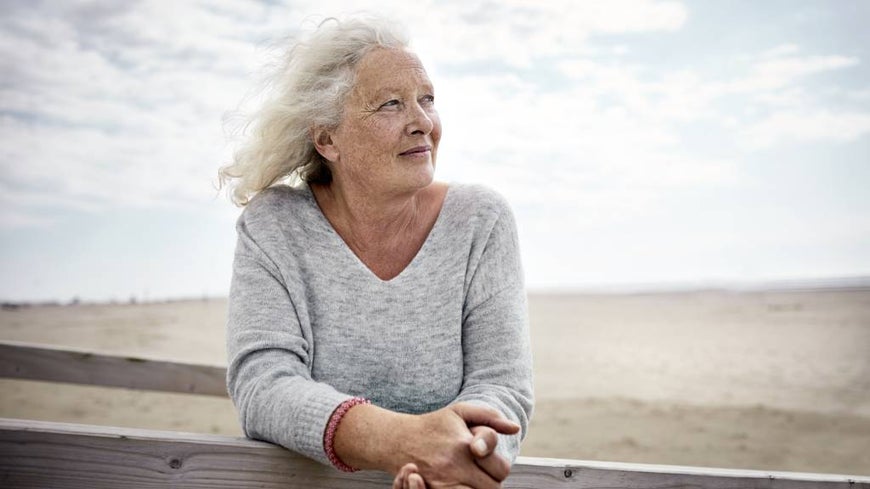The invisible age

Written by Trudie McConnochie for Australian Seniors.
It happens gradually, so gradually it takes a while to recognise that people are treating you differently. Your colleagues stop asking your opinions. Customer service staff ignore you in favour of younger customers. People on the street push past you. It’s like you’re invisible as an older person.
As co-chair and secretary of EveryAGE Counts, a national campaign aimed at tackling ageism, Dr Marlene Krasovitsky has heard plenty of stories of people over the age of 50 being dismissed by younger folk. She says the phenomenon is particularly evident in workplaces. “You might have had a successful working life, but if you’re in the job market, people might start questioning your skills,” she says.
Healthcare situations are another space where older people sometimes feel like they aren’t being taken seriously, Dr Krasovitsky says. Being brushed off by a doctor or medical professional could make you reluctant to seek out healthcare in the future, meaning you may miss out on advice and treatments that would help you stay well as you age.
Mental health impact
Invisibility can take a toll on mental wellbeing. “We can begin to internalise those messages of being of lesser value, of lesser relevance, in the face of all those assaults on our sense of self, and we may begin to withdraw,” Dr Krasovitsky explains. “So living in a society within which all of those assumptions and behaviours are normalised and accepted really has a profound negative impact on older people’s lives.”
Dr Zena Burgess, CEO of the Australian Psychological Society, says clients sometimes share with psychologists their struggles with this issue as they age. “Feeling invisible may lead to feelings of isolation and loneliness, as well as potentially increasing the risk and impacts of depression, anxiety or other mental health concerns,” she says.
Vanishing women
You only need to look at the proliferation of anti-ageing products and treatments to know that we live in a society that prizes young looks, with women particularly under pressure to remain youthful looking. That obsession with youth, says Dr Krasovitsky, is partly why women tend to experience the feeling of being deemed irrelevant as they age more than men. “Many of the stories we grew up with portray older women as evil, ugly, vain, manipulative or untrustworthy. Birthday cards often portray older women, and men, as frail, forgetful or foolish. This is pervasive and often goes unquestioned.”
Radio broadcaster Jacinta Parsons believes part of the reason women are more cognisant of feeling less visible stems from the fact that girls learn from a young age that the way they look is tied to their worth. So for many women, being less visible means being less valuable. “It’s difficult for women, particularly, to navigate the world without being noticed,” she says. It’s very obvious, then, when that shifts.
Changing perceptions
Jacinta believes changing the way older people are portrayed in the media would go a long way towards making them more visible in the community. According to the Australian Human Rights Commission, older people in the media are often portrayed as frail, weak, victims or in poor health.
EveryAGE Counts is calling on all Australians to challenge their internalised negative ideas about what it means to age. If you’re an older person, that’s especially important, says Dr Krasovitsky, because if you start to believe that your perspectives matter less than younger people’s, it can be a slippery slope to losing agency over the way you live your life.
Age discrimination by the numbers
The Australian Seniors Series: Ageing in the Workforce 2021 has found that people over 50s do the feel the impact of being older;
- 89% of over 50s think ageism is prevalent in society
- 21% have experienced age discrimination at work
- 69% say they’ve been turned down for a job because of age
- 98% feel it’s harder to find a job the older they get
Fighting invisibility
So what should you do if you feel dismissed or ignored because of your age? Dr Krasovitsky recommends you call it out. If, for example, people make a comment about you being “past it”, let them know that that’s not okay – even though they may
insist it was “just a joke”. “Instead of getting sucked into a debate about what jokes are acceptable, maybe just explain how the joke made you personally feel and how you think it might make other older people feel,” she suggests.
In healthcare situations, it’s vital to make your voice heard. “We know that ageism and the invisibility of older people can lead to them not being presented with the full range of healthcare options and treatments,” says Dr Krasovitsky. “Don’t be afraid to question advice or get a second opinion, because ‘you’re just getting old’ is not a satisfactory explanation.”
Taking charge
Caring for your mental wellbeing by maintaining strong connections with friends and family is also important. “If people are feeling ‘invisible’ as they grow older, it might be helpful to try something new, to expose themselves to a learning opportunity,” Dr Burgess says.
“Local groups can give people the chance to be part of a community, build friendships and generate feelings of togetherness which are important in reducing feelings of loneliness and isolation. “Psychologists can also help people to challenge the underlying beliefs they have about ageing and give them tools to develop more positive beliefs.”
28 Apr 2024